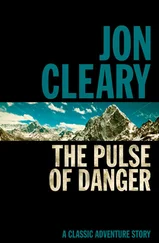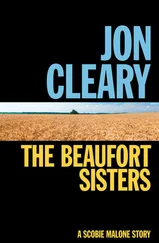Farnol and Karim walked their horses down to the road that ran through the bazaar. Storekeepers offered them everything from food to elixirs; the smell of curry and fried cakes thickened the thin mountain air; voices, the bleat of a goat, the piping of a musician, the chorus of a bazaar, impressed themselves on the ear. Two men, shoulder to shoulder, a four-legged beast with a two-humped back, came down the narrow street and the crowd fell back; the men carried a tree-trunk twenty feet long and two feet thick; Farnol and Karim dragged their horses into a side alley and the men went past, faces set like stone, trance-like under their massive burden. A small band of Tibetans sauntered down the road, long hair falling down to their shoulders, sheepskin jackets hanging to their knees; dirt cracked on their faces as they smiled and waved their long wooden pipes at the storekeepers, who forgave them their ragged and filthy appearance because they knew these Tibetans were truthful and honest and not thieves like some of their own kind. Two government messengers in scarlet and gold strutted down the middle of the road, self-important as bantam cocks; monkeys sat on roof-tops and mocked them. Farnol and Karim moved through the press of the crowd and as ever Farnol felt the pleasure he always did when he was in a bazaar. If you were to understand India, this was where you had to come.
Then up ahead, surrounded by beggars and storekeepers, he caught a glimpse of Miss O’Brady.
Karim shouted to the crowd to let the sahib through and began whacking about him with his lathi . The horses shied and Farnol had his attention distracted from Bridie as he tried to quieten his horse. When he looked back towards her he did not immediately see her; instead he saw the two men pushing through the crowd on the far side, one of them faintly familiar. Then he recognized the blue scarf and the sheepskin jerkin the man wore; he let go his horse and fought his way through the crowd, shouting to Bridie. His voice carried: Bridie suddenly popped up, as if she had been squatting down to look at something. And behind her the two men suddenly halted, looked across the heads of the crowd at Farnol. For just a moment he saw the dark eyes above the mask of the blue scarf on the taller of the two men; it was the man who had tried to kill him last night. Then abruptly the two men turned and bolted.
Farnol tried to thrust his way through the thick press of bodies, but one had to be as slippery as a bazaar thief to move quickly through a bazaar crowd. By the time he got as far as Bridie the men had disappeared from the far edge of the crowd, were gone down one of the steep alleys of steps to a lower level.
‘You shouldn’t have come down here!’ His voice was more curt than he intended, but he was concerned at how close she had come to being either murdered or kidnapped.
‘What’s the matter? I came down here to buy some last-minute things –’
He took her by the arm, more roughly than was necessary, pulled her behind him through the crowd as Karim, now dragging both horses, followed him. The crowd, sensing tension between the sahib and the memsahib, always glad of a free show, moved up the narrow road with them. He had always been at home with a bazaar crowd; all at once now he hated them and struck out with his free arm. The crowd fell back without resentment, or at least any show of it; they silently mocked the Europeans who always wanted space around them, as if they were some sort of holy men. When Farnol finally dragged Bridie into the clear he was more angry with himself than with the mob that had impeded him. He had once thought of himself as a champion of these people.
‘For Heaven’s sake – !’ Bridie, too, was angry with him. She straightened her hat and jerked down her sleeves. ‘What’s wrong with a little shopping? I was down here yesterday –’
‘Yesterday was yesterday,’ he said, sounding even in his own ears obvious and pedantic, as if he were talking to a child. ‘The man who tried to kill me last night was in that crowd. He was either going to harm you or kidnap you.’
The crowd now stood at a respectful distance, but still close enough to have their ears cocked. Voices were hissing for everyone to be quiet so that nothing would be missed of what the sahib and the memsahib said to each other. Farnol realized he had said too much and, once again angry at them, he turned on them and told them to clear off. Karim added his larger shout to that of his boss and the crowd reluctantly retreated.
Farnol and Bridie climbed the hill, with Karim bringing up the rear with the two horses. Bridie had regained her composure, though she was worried now rather than annoyed. ‘You really think he’d have kidnapped me? Or – ?’ She couldn’t bring herself to go on. She was not new to violence, she had reported on two murders and a strike battle; but she had always been at least one remove from it, a reporter and not a victim. She shied away from the thought of herself as a possible victim. ‘Why me?’
‘I don’t know. Perhaps they wanted to trap me into coming after you.’
‘Would you?’ It was not coquetry: she suddenly felt alone and didn’t want to be. She looked back down the steep hill to the bazaar; backs were turned, the crowd was no longer interested in them, a living had to be made. But she saw the press of people, the river of bobbing heads between the banks of the ramshackle stores, and she saw the India in which one could so easily be lost.
‘Of course.’ He looked at her with sudden sympathy; and something more. ‘I say, I’m awfully sorry I was so rough with you. I tend to act a little quicker than I think.’
‘Trust to your reflexes.’ She managed a smile. ‘But I’ll know what to expect in future.’
‘How’s your head this morning?’
‘Just a small ache, not much. Have you been to see the Ranee? I asked for you at breakfast –’
They were walking along the road that led to the Lodge, under the overhang of the tall deodars. Far below he could see the train at the terminus, already being loaded for the afternoon’s journey down to Kalka. He counted eight carriages and twelve wagons; he couldn’t remember ever seeing such a long train and he wondered how it would handle the very narrow gauge track; it could be a long slow trip. Especially with the elephants, standing in the station yard, that would be later loaded on to the wagons. He guessed they would not be experienced train travellers and if the train got up too much speed, swaying on the numerous bends, they might go berserk.
‘The Ranee said she knew nothing about Major Savanna and that nobody could have heard her say that he was answerable to her.’
‘She’s a liar.’
He was not accustomed to women being so direct, not even the Ranee. ‘That’s what I think.’
‘Does she know it was me who overheard her?’
‘No, she thinks it was one of the servants. We’ll meet her again on the trip down, so watch you don’t give too much away.’
She paused and looked directly at him. ‘We’re in this together now, aren’t we?’
He hesitated, then with a mixture of apprehension and yet pleasure he said, ‘I’m afraid so, at least till we get to Delhi.’
Behind them Karim, ears as finely tuned as those of the bazaar crowd, twisted his mouth as if he had suddenly sucked on something sour. A woman’s place was not with men, they were nothing but trouble outside the bedroom or the kitchen. Was not the black deity of death a woman, Kali? He wondered if some poison had got into the sahib that he should show such weakness. He knew the sahib liked women and spent a lot of time in their bedrooms. But he looked and sounded different in his way with this American woman.
They came to the gates at the bottom of the Lodge drive. Half a dozen soldiers stood outside the guard-house, amongst them Captain Weyman, who looked distracted and angry.
Читать дальше












